Animals
-
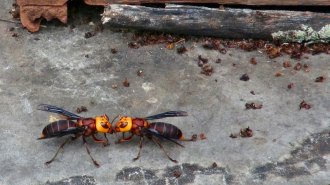 Animals
AnimalsHow to make irresistible traps for Asian giant hornets using sex
Traps baited with compounds found in the sex pheromone of hornet queens attracted thousands of males in China.
-
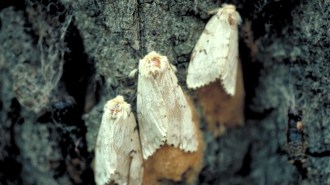 Animals
AnimalsThe spongy moth’s new name replaces an ethnic slur
The Entomological Society of America renamed Lymantria dispar the “spongy moth,” replacing its previous problematic common name, “gypsy moth.”
By Jude Coleman -
 Animals
AnimalsGenetically modified mosquitoes could be tested in California soon
The EPA also OK’d more trials in Key West, Fla. Both states now get their say in whether to release free-flying Aedes aegypti to sabotage their own kind.
By Susan Milius -
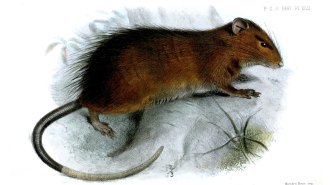 Genetics
GeneticsAn extinct rat shows CRISPR’s limits for resurrecting species
Scientists recovered most of the Christmas Island rat’s genome. But the missing genes signal a problem for using gene editing to de-extinct species.
By Anna Gibbs -
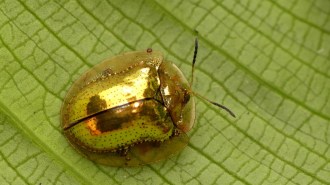 Animals
AnimalsMirror beetles’ shiny bodies may not act as camouflage after all
Hundreds of handmade clay nubbins test the notion that a beetle’s metallic high gloss could confound predators. Birds pecked the lovely idea to death.
By Susan Milius -
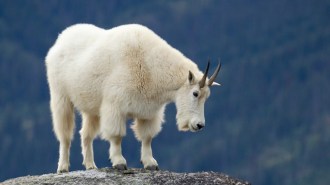 Animals
AnimalsCulturally prized mountain goats may be vanishing from Indigenous land in Canada
As fewer mountain goats are spotted along British Columbia’s central coast, First Nations people team up with biologists to assess the population.
-
 Paleontology
PaleontologyScientists are arguing over the identity of a fossilized 10-armed creature
An ancient cephalopod fossil may be the oldest ancestor of octopuses, but the interpretation hinges on the identification of one feature.
By Anna Gibbs -
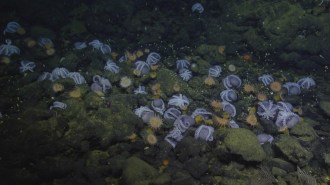 Oceans
OceansSome deep-sea octopuses aren’t the long-haul moms scientists thought they were
Off California’s coast, some octopuses lay eggs in the warmer water of geothermal springs in the “Octopus Garden,” speeding up their development.
-
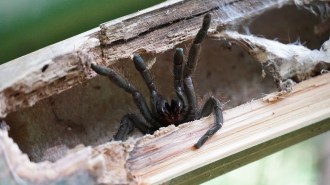 Animals
AnimalsThis newfound tarantula is the first known to make its home in bamboo
Bamboo stems provide the spider with ready-made burrows and nests, but the arachnid must rely on other animals or natural forces to gain entry.
By Becki Robins -
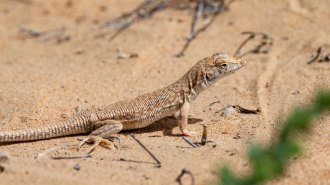 Animals
AnimalsHow lizards keep detachable tails from falling off
A hierarchical structure of micropillars and nanopores allows the tail to break away when necessary while preventing it from easily detaching.
By Anna Gibbs -
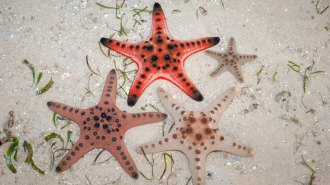 Animals
AnimalsA diamondlike structure gives some starfish skeletons their strength
Electron microscope images of knobby starfish’s calcite skeletons reveal an unexpected architecture that compensates for the mineral’s brittleness.
-
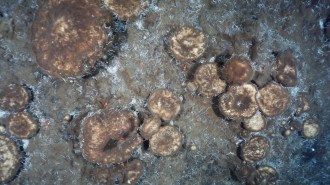 Animals
AnimalsDeep-sea Arctic sponges feed on fossilized organisms to survive
Slow-moving sponges, living deep in the Arctic Ocean where no currents deliver food, scavenge a carpet of long-dead critters.